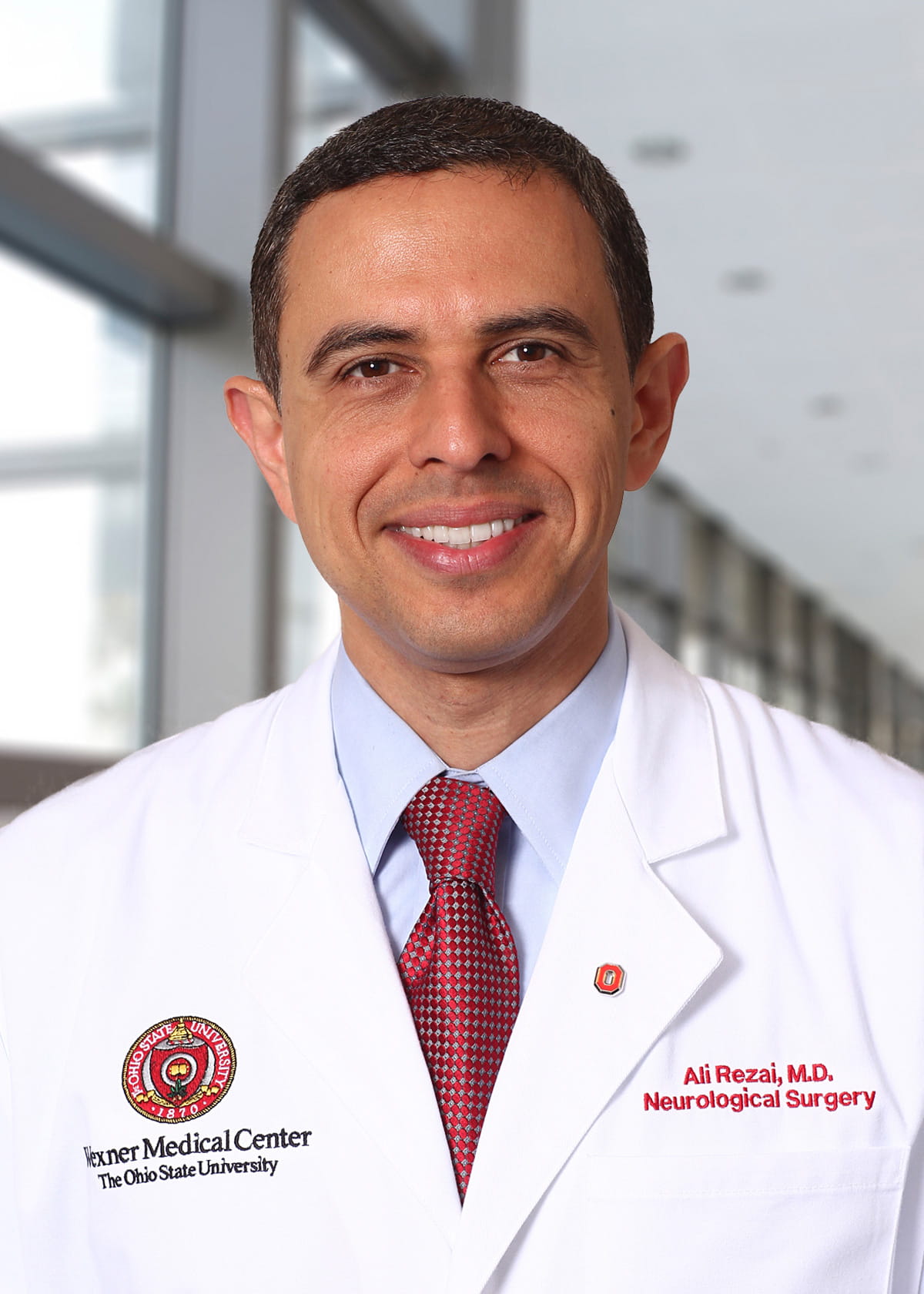August 26, 2016
 COLUMBUS, Ohio – For the first time, researchers at The Ohio State University Wexner Medical Center have demonstrated the safety and effectiveness of using deep brain stimulation (DBS) in a new brain target to improve the quality of life and functioning of people with severe disability from traumatic brain injury (TBI).
COLUMBUS, Ohio – For the first time, researchers at The Ohio State University Wexner Medical Center have demonstrated the safety and effectiveness of using deep brain stimulation (DBS) in a new brain target to improve the quality of life and functioning of people with severe disability from traumatic brain injury (TBI). The findings are published in the August issue of the journal Neurosurgery.
“The results of this study show that DBS can significantly improve function in patients who have been impaired for up to 21 years from their initial TBI. We are excited about this study as it provides hope for future research to help patients and families affected by TBI,” said Dr. Ali Rezai, CEO of Ohio State’s Neurological Institute.
Rezai and John Corrigan, professor in the department of physical medicine and rehabilitation at Ohio State’s Wexner Medical Center, led this first-in-the-world study in which researchers investigated the use of DBS in the nucleus accumbens of four patients who had suffered severe disabling TBI from automobile crashes six to 21 years earlier. These patients had significant impairment in daily life functions, requiring continuous supervision. The goal of the study was to improve behavior and cognitive function.
Each year, 1.7 million Americans are treated in medical facilities as a result of TBI. While most of these injuries are mild, 25 percent are classified as moderate or severe TBI, resulting in more than 80,000 new cases of disability each year in the United Sates.
Severe TBI commonly damages the frontal lobe, resulting in a profound impairment in cognition and behavioral function with impairments in executive function and behavioral self-regulation, including impulsivity and poor decision-making. Despite the significant and long-lasting disabling motor, cognitive and behavioral effects of TBI, there are few treatment options for these patients. Many often live at home or institutions, requiring constant care and supervision, with limited hope for improvements of quality of life.
“The results showed that two years following DBS, three of the four participants demonstrated behavioral and emotional improvements and substantial gains in functional independence in self-care and activities of daily living,” said Rezai, who also is director of Ohio State’s Center for Neuromodulation.
DBS technology has been used to successfully treat more than 130,000 patients worldwide for various indications. DBS is FDA-approved in the United States for the treatment of movement disorders, including Parkinson’s disease, essential tremor and dystonia, along with obsessive compulsive disorder and epilepsy.
The DBS implant is similar to a cardiac pacemaker device, except that the pacemaker wires are implanted in the brain rather than the heart.
"Almost all of the research on TBI focuses on preventing the injury or diagnosing and treating it right after it occurs. There have been very few breakthroughs to help people living with the long-term effects of severe TBI,” Corrigan said. “We’re hoping that deep brain stimulation can point the direction for new interventions to improve the lives of people many years after devastating injuries."
This study was a collaborative effort between neurosurgeons, psychologists, physical medicine and rehabilitation specialists, and neuroscientists at Ohio State’ Neurological Institute.
# # #
